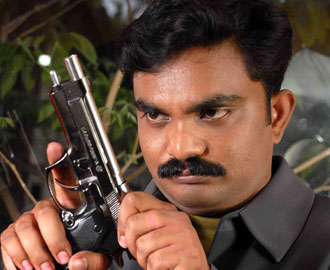Bengaluru, Jun 28: Police Sub-Inspector turned BJP activist Girish Mattennavar and two of his associates have been finally acquitted by a local court, here in 13 year old case of bomb attack attempt on Karnataka Legislators' Home.
 Even though Mattennavar had openly claimed to have planted the bombs after his arrest and justified his action by saying that it was an attack against corruption, Judge Chennakeshava on Monday exonerated him and two others due to lack of evidence.
Even though Mattennavar had openly claimed to have planted the bombs after his arrest and justified his action by saying that it was an attack against corruption, Judge Chennakeshava on Monday exonerated him and two others due to lack of evidence.
Mattennavar, a 26-year-old sub-inspector with Narona police, Kalaburagi, in 2003, had come to the city for rifle-shooting training, when he allegedly planted four bombs in the fifth floor toilets of the Legislators' Home, and made a call to the police control room alerting it of the bombs.
The callers had claimed that theirs was a crusade against corruption by politicians. The police had later arrested Mattennavar, Guranna Ammapura and Girish Babu, his associates in connection with the case, and charge-sheeted them.
Even though the local media had initially treated it as a terror attack, after the arrest of Mattennavar, he was treated as a crusader against corruption.
The trial of the case that dragged on for 13 years, ended on Monday in the acquittal of all the three accused in the case by the 66th City Civil Court and Sessions Court.
Vidhana Soudha police sources said the court had acquitted all the three accused in the case on the benefit of doubt for want of evidence. The owner of the STD booth from where the group had made the call to the police had allegedly noted down the motorcycle number when they returned again to fetch the helmet they had left behind.
This formed the main evidence against the accused. However, this evidence was successfully challenged in the court after which the case fell flat, said senior police officials involved in the case.
Mattennavar, who is now a BJP activist, expressed his happiness over the acquittal. However, after the judgement he was careful enough not to comment on his involvement in the case even though he had openly confessed to the crime 13 years ago.





Comments
Another Hindu terrorist?
Court acquitted him ....
Now he is dangerous to the society and cant trust this guy anymore. He can do anything anytime anywhere.
Add new comment